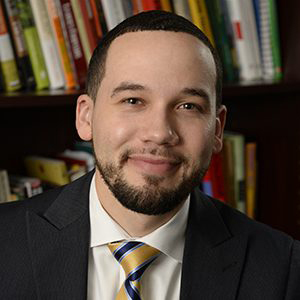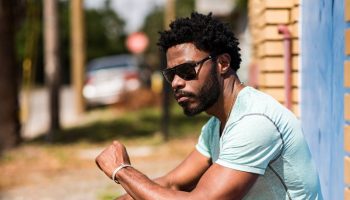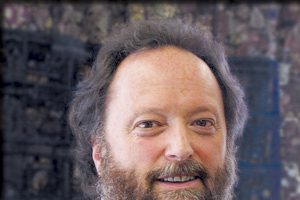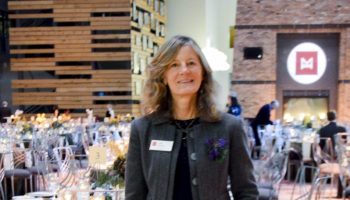
Since its founding in 2011, Claremont Lincoln University has lived out a mission to encourage muscular civil dialogue that inspires change.
“The school was founded with the notion that we simply cannot continue and thrive if the way that we engage with each other is to put each other down,” said CLU President Eileen Aranda. “Put down leads to shut down.”
On Tuesday, July 3 in Smith Wilkes Hall, Aranda and CLU’s Vice President for Creative Learning and Innovation David Carter presented the university’s mission during their “Civil Dialogue Workshop.” The presenters were welcomed by Emily Morris, the Institution’s vice president of marketing and communications and chief brand officer.
“As someone who studied higher education for a good part of my career, I have watched the development of Claremont Lincoln University with great interest,” Morris said. “Not only are they new, … but they are also 100 percent online and 100 percent in the graduate space, and they are a nonprofit organization. I love their entrepreneurship.”
Morris also noted the work of two principal founders of CLU, the late David Lincoln and his wife, Joan, both longtime Chautauquans and advocates for civil dialogue.
For Aranda, Tuesday’s presentation marked her first time on the grounds. Carter, however, came to the Institution last summer to present a similar workshop on civil dialogue. This year’s session is a continuation of that work and the Institution’s goal of creating a “muscular civil dialogue” among Chautauquans.
The pair began the workshop by reiterating the “Claremont Core,” four courses that CLU students are required to take: mindfulness, dialogue, collaboration and change.
“This is all about ensuring a core curriculum so that students can go out and really create change, really do something with their degree,” Carter said, “to not just have a degree to have one, but actually engage with society.”
Carter defined mindfulness as “being present and fully aware,” which then leads to effective dialogue. Once dialogue ensues, the next logical step is collaboration, which Carter explained by drawing from personal experience.
“I learned this in the military, and I learned this as a police officer — you have to work with people to solve problems,” he said. “I have just over 500 arrests in my career, and most of those were solved by civilians who helped us to get to that (number) and create real change in the community. Collaboration is when you come together to solve a problem.”
In turn, collaboration creates change, and the entire group benefits.
But the presentation’s key idea unpacked a different part of the CLU mission: its purpose.
“Maybe you thought in your mind one time, ‘Why do we do this and who actually cares?’ ” Carter said.
Carter and Aranda recognized people’s hesitation to engage in civil dialogue and take the necessary steps laid out by CLU’s core curriculum. It takes patience to listen to different viewpoints and ideas, especially if one disagrees.
Aranda used the example of homelessness in California, which is a multifaceted problem with many conflicting solutions. When faced with an issue that feels unsolvable, she encouraged the audience to practice introspection.
“If I don’t do it, who will?” she said. “As the world gets more and more complex, the problems get more and more complex, which means that we need many different perspectives to resolve them. … Rather than saying there’s only one way to get there, and I have my idea and you have your idea, how do we come together?”
The act of coming together and combining ideas begins with someone’s mindset, Carter said.
“If you don’t have that mindset that it’s helpful to engage in dialogue, then it really is pointless for you,” he said. “An argument is not dialogue, and nothing is going to come out of that because your mind is already closed to it.”
Instead, Carter encouraged Chautauquans to start each conversation with a clean slate, ready to listen and reflect on what others contribute.
“We at CLU, we dwell in possibility, meaning through a conversation with someone who has an opposing view, … we can create change of some sort, something positive can come out of that,” he said. “I’ve seen it happen time again.”
Carter used the example of Daryl Davis, an African-American blues musician who has spent countless hours in conversation with members of the Klu Klux Klan, convincing them to leave the group. Though it has taken years, Davis has found success in his pursuit.
“How does he do it?” Carter said. “Through years of dialogue and sitting down with klansmen and talking to them.”
Carter admitted this is an extreme example, but also a very real and inspirational story that demonstrates the power of patience and civil dialogue. In addition to practicing tolerance, Carter and Aranda also stressed that there needs to be balance. Engaging in dialogue requires both active listening and thoughtful response.
“To be civil does not mean to be passive, it does not mean to just be accommodating,” Aranda said. “Dialogue is a balance of advocacy and inquiry. You ask, and you tell your truth.”
By creating a balance between advocacy and inquiry, progress will transpire, Aranda said. To help Chautauquans further understand this balance, Aranda and Carter encouraged the audience to look for ways to experience diversity.
“We always want to have a diverse group,” Carter said. “We don’t want everyone to think the same way.”
To conclude their workshop, Carter and Aranda provided a comprehensive checklist of steps to take before engaging in civil dialogue: be prepared, know who is in the room, set guidelines, have clear instructions, manage time like a Scrooge, manage conflict like a referee, and have an agenda.
And, of course, they encouraged the community to never stop being curious.
“I think you are Chautauquans for several reasons, but one of those has to include lifelong learning,” Carter said. “There’s no way we’re going to teach you everything you need to know about civil dialogue in 60 minutes. But the point is that you must go and continue your knowledge, from this point forward, to become better at dialogue.”




